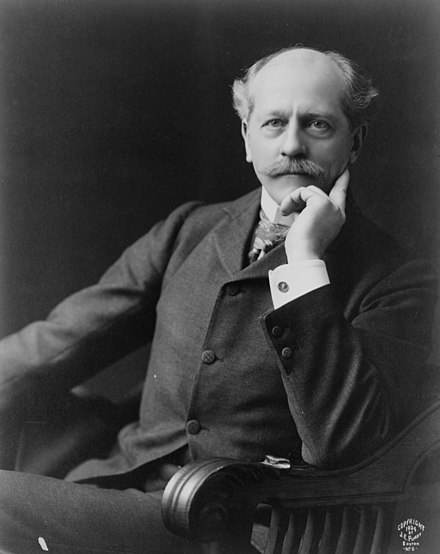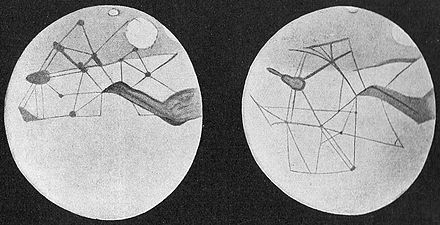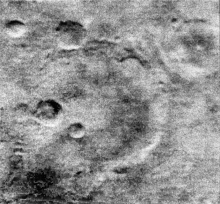Percival Lowell
Percival Lowell (/ˈloʊəl/; March 13, 1855 – November 12, 1916) was an American businessman, author, mathematician, and astronomer who fueled speculation that there were canals on Mars, and furthered theories of a ninth planet within the Solar System. He founded the Lowell Observatory in Flagstaff, Arizona, and formed the beginning of the effort that led to the discovery of Pluto 14 years after his death.
Percival Lowell was born on March 13, 1855,[1][2][3] in Boston, Massachusetts, the first son of Augustus Lowell and Katherine Bigelow Lowell. A member of the Brahmin Lowell family, his siblings included the poet Amy Lowell, the educator and legal scholar Abbott Lawrence Lowell, and Elizabeth Lowell Putnam, an early activist for prenatal care. They were the great-grandchildren of John Lowell and, on their mother's side, the grandchildren of Abbott Lawrence.[4][3][5]
Percival graduated from the Noble and Greenough School in 1872 and Harvard University in 1876 with distinction in mathematics.[5] While at Harvard he joined Delta Kappa Epsilon fraternity. At his college graduation, he gave a speech, considered very advanced for its time, on the nebular hypothesis. He was later awarded honorary degrees from Amherst College and Clark University.[6] After graduation he ran a cotton mill for six years.[3]
In the 1880s, Lowell traveled extensively in the Far East. In August 1883, he served as a foreign secretary and counselor for a special Korean diplomatic mission to the United States. He lived in Korea for about two months.[3] He also spent significant periods of time in Japan, writing books on Japanese religion, psychology, and behavior. His texts are filled with observations and academic discussions of various aspects of Japanese life, including language, religious practices, economics, travel in Japan, and the development of personality.
Books by Lowell on the Orient include Noto: An Unexplored Corner of Japan (1891) and Occult Japan, or the Way of the Gods (1894), the latter from his third and final trip to the region. His time in Korea inspired Chosön: The Land of the Morning Calm[3] (1886, Boston). The most popular of Lowell's books on the Orient, The Soul of the Far East (1888), contains an early synthesis of some of his ideas that, in essence, postulated that human progress is a function of the qualities of individuality and imagination.[citation needed] The writer Lafcadio Hearn called it a "colossal, splendid, godlike book."[7] At his death he left with his assistant Wrexie Leonard an unpublished manuscript of a book entitled Peaks and Plateaux in the Effect on Tree Life.[7]


